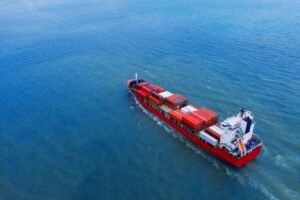As the maritime industry navigates towards more sustainable practices, optimizing hull design and hydrodynamics has emerged as a key strategy for enhancing ship energy efficiency. This article delves into the critical aspects of hull design, hydrodynamic principles, and technological innovations aimed at improving fuel efficiency.
1. Evolution of Hull Design
Hull design has evolved significantly over the years, driven by advancements in technology and a growing emphasis on fuel efficiency. Historically, ship hulls were designed primarily for durability and cargo capacity. However, modern hull design focuses on optimizing hydrodynamic performance to reduce fuel consumption.
- Historical Hull Designs: Early hull designs were relatively simple, often resulting in higher resistance and greater fuel consumption. Ships were built with heavy, robust hulls to withstand the harsh marine environment, often at the expense of fuel efficiency.
- Modern Advances: Today’s hull designs leverage sophisticated computer simulations and modeling tools to create shapes that minimize resistance. Streamlined forms, advanced materials, and innovative construction techniques contribute to improved energy efficiency and reduced operational costs.
2. Key Factors Influencing Hull Efficiency
Several factors influence the efficiency of a ship’s hull design, each contributing to the overall energy performance of the vessel.
- Hull Shape: The shape of the hull plays a critical role in determining the ship’s hydrodynamic performance. Streamlined, bulbous bows and smooth, tapered sterns help reduce wave-making resistance and drag. The goal is to create a hull that allows the vessel to move through water with minimal resistance.
- Hull Surface Condition: A smooth hull surface is essential for reducing frictional resistance. Regular maintenance, including cleaning and coating the hull with anti-fouling agents, helps maintain a smooth surface and ensures that the ship operates at peak efficiency.
- Design Innovations: Modern design innovations, such as the use of computational fluid dynamics (CFD), enable precise optimization of hull shapes. CFD simulations allow designers to test and refine hull forms to achieve the best possible hydrodynamic performance before construction.

3. Hydrodynamic Principles for Enhancing Efficiency
Hydrodynamics—the study of fluid flow around solid objects—is crucial in optimizing a ship’s energy efficiency. Key hydrodynamic principles that contribute to better fuel efficiency include:
- Wave Resistance: Ships generate waves as they move through water, creating resistance. Advanced hull designs, such as wave-piercing bows and stern flaps, help reduce wave resistance. By minimizing the impact of wave-making, these designs reduce the energy required for propulsion.
- Flow Optimization: Ensuring smooth flow of water around the hull and submerged components is vital for reducing turbulence and drag. Features such as fairings for appendages and optimized propeller designs contribute to improved hydrodynamic performance.
- Energy-saving Devices: The incorporation of devices like wake stabilization fins, vortex generators, and energy-saving propellers can enhance the efficiency of a ship. These devices help control the flow of water around the hull and appendages, reducing the overall power needed for propulsion.
4. Technological Innovations in Ship Efficiency
Advancements in technology have revolutionized the approach to improving ship energy efficiency. Modern technologies play a crucial role in optimizing hull design and hydrodynamic performance:
- Real-time Monitoring Systems: Advanced monitoring systems provide real-time data on a vessel’s performance, allowing operators to make informed decisions and adjustments to optimize fuel efficiency. These systems can track parameters such as fuel consumption, speed, and hull performance.
- Hybrid and Alternative Propulsion Systems: Hybrid propulsion systems, combining traditional engines with electric or alternative power sources, offer significant improvements in fuel efficiency. Additionally, the use of alternative fuels, such as LNG or biofuels, helps reduce the environmental impact of maritime operations.
- Predictive Analytics: Predictive analytics and machine learning algorithms enable proactive maintenance and performance optimization. By analyzing historical data and performance trends, these technologies can predict potential issues and recommend solutions to enhance efficiency.
5. Case Studies and Real-world Applications
Examining real-world applications of advanced hull design and hydrodynamic technologies can provide valuable insights into their effectiveness:
- Case Study: Energy-efficient Tanker Design: A recent study on energy-efficient tanker designs highlighted the impact of bulbous bows and optimized sterns on fuel consumption. The implementation of these features resulted in a significant reduction in fuel usage and operational costs.
- Case Study: The Role of Energy-saving Devices: A study of vessels equipped with wake stabilization fins and energy-saving propellers demonstrated improvements in fuel efficiency. The devices helped reduce drag and improve the flow of water around the hull, leading to lower fuel consumption.
The End
Optimizing hull design and hydrodynamics is essential for improving ship energy efficiency. By focusing on advanced hull shapes, innovative hydrodynamic principles, and cutting-edge technologies, the maritime industry can achieve substantial fuel savings and reduce environmental impact. As technology continues to advance, ongoing research and development will play a pivotal role in driving further improvements in ship efficiency and sustainability.













































